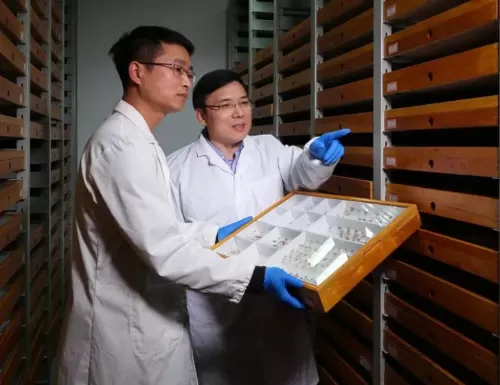Effective Pest Control: Protecting Your Home and Garden
Pest control is essential for maintaining a healthy and comfortable living environment. Whether it's in your home or garden, pests can cause significant damage and pose health risks. This article will explore various methods to control and eliminate pests effectively.

Understanding Common Pests
Different pests require different control strategies. Some of the most common pests include:
Insects: Ants, cockroaches, mosquitoes, and termites.
Rodents: Mice and rats.
Wildlife: Raccoons, squirrels, and birds.
Prevention First
Preventing pests from entering your home or garden is the first line of defense. Here are some tips:
Seal Entry Points: Ensure all cracks and gaps in walls, doors, and windows are sealed.
Maintain Cleanliness: Keep your home clean, especially the kitchen and dining areas. Dispose of garbage regularly.
Proper Storage: Store food in airtight containers and avoid leaving pet food out overnight.
Natural Pest Control Methods
Many people prefer natural pest control methods to avoid the use of harmful chemicals. Here are some effective natural strategies:
Neem Oil: This natural pesticide is effective against a wide range of pests, including aphids and mites.
Diatomaceous Earth: This powder is lethal to insects but harmless to humans and pets. Sprinkle it around the garden or home to control pests like ants and fleas.
Beneficial Insects: Introduce beneficial insects like ladybugs and predatory beetles to your garden. These insects prey on harmful pests.
Chemical Pest Control
When natural methods are not sufficient, chemical pest control can be used. However, it is essential to use these products responsibly:
Insecticides: Choose insecticides that target specific pests. Follow the instructions carefully to minimize risks to humans and pets.
Rodenticides: These are effective for controlling rodent populations. Place them in areas where rodents are active, but out of reach of children and pets.
Professional Pest Control Services: For severe infestations, hiring a professional pest control service can be the most effective solution. They have access to more potent chemicals and have the expertise to apply them safely.
Integrated Pest Management (IPM)
Integrated Pest Management (IPM) is a holistic approach to pest control that combines various methods to minimize the use of chemicals. IPM involves:
Monitoring: Regularly check for signs of pests to catch infestations early.
Identification: Accurately identify the pests to choose the most effective control methods.
Prevention: Implement preventive measures to reduce the risk of infestations.
Control: Use a combination of natural and chemical methods to control pests.
Conclusion
Effective pest control requires a proactive approach that includes prevention, natural methods, and, when necessary, chemical treatments. By understanding the pests you are dealing with and using a combination of strategies, you can protect your home and garden from damage and health risks.
By following these tips and considering an Integrated Pest Management approach, you can keep your living spaces pest-free and enjoy a healthier, more comfortable environment.

